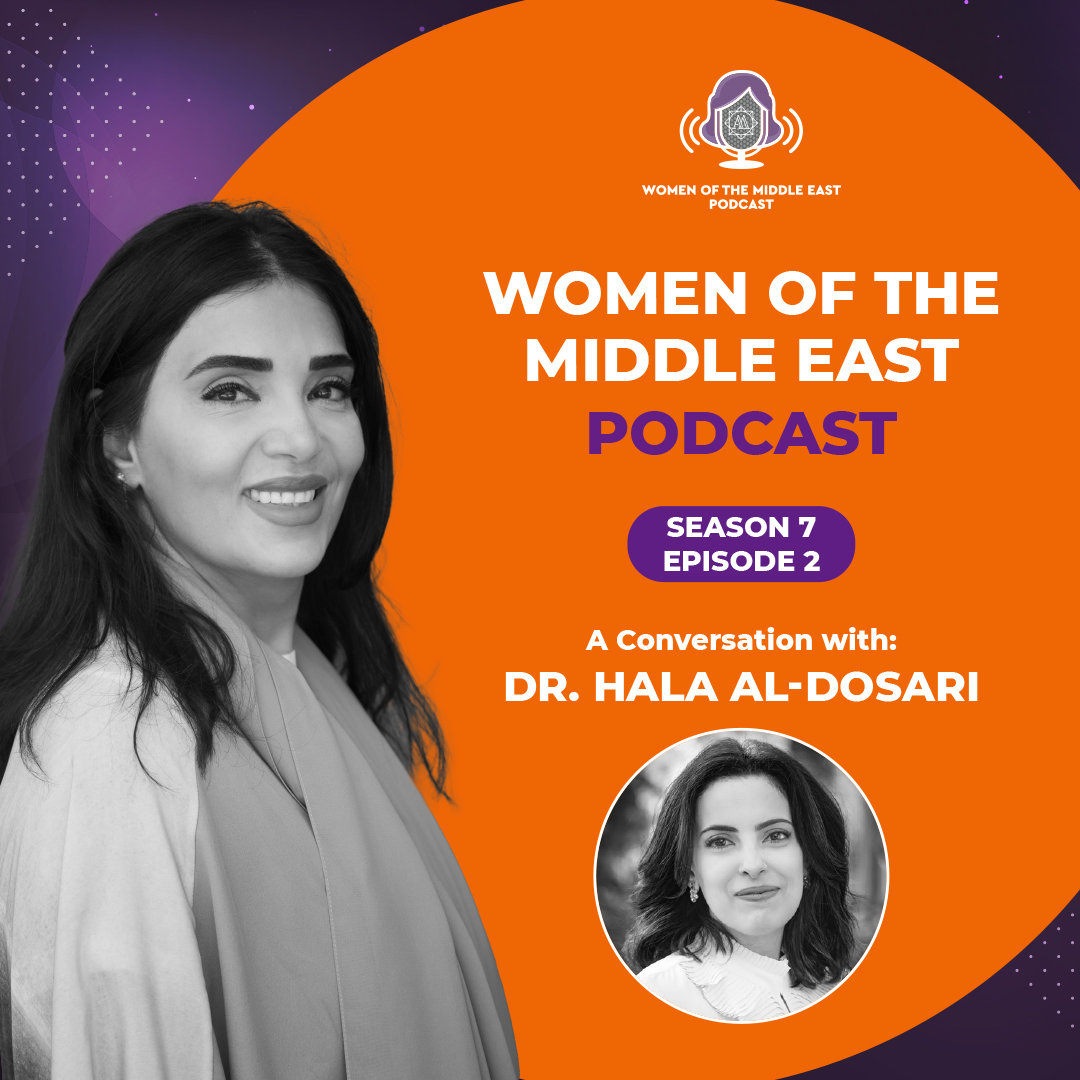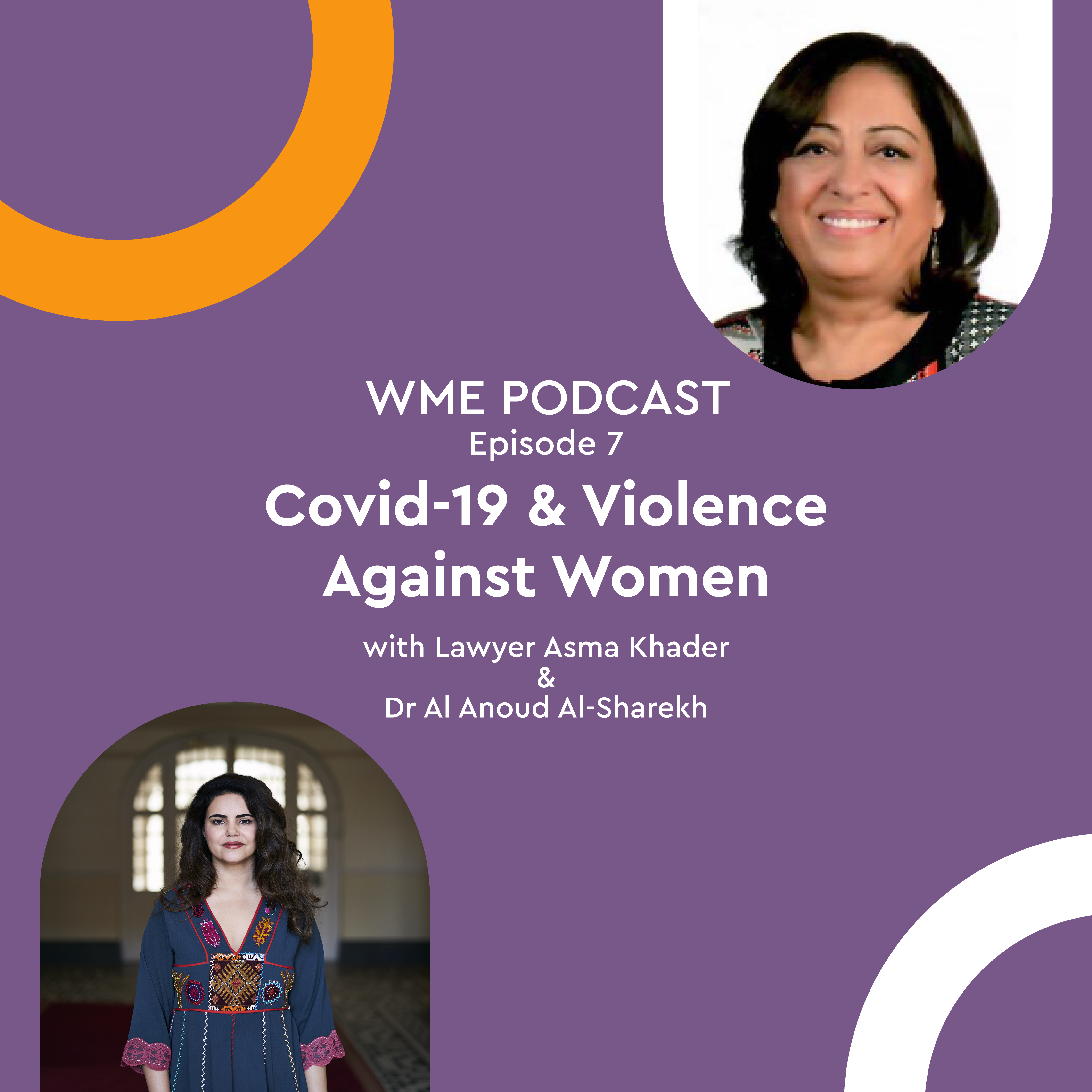Episode Transcript
Speaker 1 00:00:03 Hello and welcome to Women of the Middle East
Speaker 2 00:00:06 Podcast, Women of the Middle East. Um, Hannah, um, when we speak about peace, human's rights, uh, women's rights, um, Hannah is a person who belongs to two different worlds, the European world, but also who has a foot in our part of the world. Tell us first why, why did this happen and what's your interest in advising, um, governments, um, uh, and acting policies that has to do, or that have to do with women and our parts of the world? Tell us a bit about that.
Speaker 3 00:00:44 Well, I mean, I have not always been a politician. Um, I had a life before that, um, and I was a researcher in peace and conflict. So I traveled and worked in a number of, of conflict regions, including in the Middle East. Um, trying to find ways on how you can make this place a bit more peaceful. And one thing I found out, and in both cultures in my own, but also in the Middle East, is that whenever we talk about hard security, whenever we talk about peace negotiations, women are largely absent from the decision making tables while it's women that suffer most from, I mean from war, women that suffer most from escalation, women that suffer more from a scarcity of resources. And I just thought, first of all, that's totally unfair, but I also understood more, more how limited the, the results of these kind of negotiations talks are if they do not include the perspectives of, and I'm not saying the perspective of women are more valuable than those of men.
Speaker 3 00:01:55 I think every perspective has a right to be represented, but it's the perspective of women that is more absent those of women of men. And that's why I started to work on this issue. And, um, I mean, first of all, it keep kind of keeps me busy in the Middle East because apparently that's a region that has a number complex, but also a region that has grown very close to my heart, a region where we have so many strong and amazing and outspoken and articulate women, but that are so excluded from this particular public debate also. Yeah. Cause they have these stereotypes that, um, Middle Eastern women, uh, well are not political or they would not be outspoken, which is totally wrong, as you can see with you areal. But there are a hundred areals all over the place, and I just wanna, not to be your voice, but to make sure that people listen to your voices.
Speaker 2 00:02:51 Amazing. And this actually, um, uh, talk, Yeah, this taps into a whole body of stereotyping and, and reductionist, um, attitudes towards women in the Middle East that unfortunately have resonated and have a long history, um, and been circulated and entrenched in the popular mind of, of the, the Europeans. How did your work in the Arab world change those perceptions? First of all, for you, uh, what, what shook you the most? Uh, was it our similarities or differences and how, how do you become a voice, our voice to the West, where, um, you would basically speak about their, those stereotypes and try to debunk them? <affirmative>,
Speaker 3 00:03:41 I mean, first of all, I grew up with these stereotypes. With these stereotypes. I mean, first of all, uh, someone wearing like an abaya and a hijab, and you can only see the faces, a terrorist kind of thing, Um, with these stereotypes that all, all these women are somehow, uh, not very educated, would not be very outspoken, would not care about politics. Um, I grew up in a very small conservative village in Germany, um, and the first time I was in Berlin and I was exposed to women from the Arab who lived there and who would wear this traditional clothing, I was staring at them <laugh>. Um, but I realized, well, it's also my stereotypes. It's, it's not them, It's my stereotypes that also keep me from having, let's say an open discussion, for example, from knowing more about them, why they wear these dresses, but also what their lives are like, Um, how maybe they really stand up and photo women's rights.
Speaker 3 00:04:41 Just, I'm not aware of it because I would never think about it. Um, and that was quite a lesson to me. Um, so when I, I traveled more to the Middle East and, um, I was always very curious to, to meet women there in politics, in the public space, one, to understand, um, what their struggles are. I mean, we as women have struggles in politics. I get all this hate bullshit and this young lady bullshit. And so it's not that we wouldn't share the same struggles, but sometimes they also have different struggles. And I just wanted to learn about them and then see how I can make sure that their, their reach wides, their platform wides, and how I can just be an Alliant. And also to, I mean, we women in Germany and the European Union, we have different political positions on a number of issues, but I really think when it comes to claiming our role in politics, we have to work that way together. And we can separate and have fights after that. And it's a bit the same.
Speaker 3 00:05:51 I mean, we may disagree on a number of things and women in the Arab world surely disagree on a hundred of things, but when it comes to the role of women in politics and the public sphere, that's a fight that is still very long and that we should fight together. And, and it's, it's that approach. And by having that approach, I learned, So, I mean, so incredibly many things also about how similar the fights are for, for women on the Arabian Peninsula, for example, to be elected in Insura councilors in parliament, to, to claim their spots in these debates. Um, where many of the people they work with just think, Well, women shouldn't have a role in that. And how, how they still manage to do it. And, and, and often I find it very encouraging. And, but then also on the other side, how some of the stereotypes that, um, officials from, from, from European countries have make their lives more difficult.
Speaker 3 00:06:54 I, I know for example, a young woman from uae, she was asked to represent her country as ambassador in EU member state. And then that EU member state said, Well, I mean, are you disregarding us because you send a young w woman to us? And I was like, Whoa, what's wrong here? Um, and these things are, are still happening, so I can talk. Or on the other side, I had the discussion, why does the European Union, um, not have one, its office delegations in the Arabia opinions were headed by woman and it doesn't, but clearly. Um, and there are people who would say, Yeah, but well, would that woman be represented? Would that woman be respected? I'm like, But that's your stereotype. And I, I made totally different experience. Um, so just using the little power I have to confront stereotypes on both sides, and by that widen the, the widen the importance and the, the gravity of, of the role and the responsibility of women in, in both areas, That's a bit what I'm trying to do.
Speaker 2 00:08:08 And you are do doing an amazing job. I think we need you as an ally, uh, and only woman would be able to bring, uh, cultures together. And you know, I believe in transnational feminism and I believe that you and I have more similarities than differences. And the differences are uniqueness that we can, you know, negotiate and mitigate. Um, my last question, What impedes gender equality in the areas you've been exposed to? I know that you've recently been to Afghanistan and Iraq. Um, what, what do you think impedes gender equality in our parts of the world?
Speaker 3 00:08:51 I, I could speak a lot about what impedes gender equality in my part of the world. Cause that's what I'm exposed to and what I know a lot about. Um, I mean, I can try to tell from my experience what I think impedes gender equality on your side of the world, but then you are more the expert than me, actually. So it feels a bit awkward. Um, I mean, one, one thing, and maybe I, I find that increasingly to be core of the debate and Afghani is done, and the Taliban is just another case in point is, is this religious argument. Like it's, it's, it's in our religious traditions. And I, I really don't, I mean, I'm, I'm not a Quran expert, but I do not read it that way. And if I look at the biggest Islamic country that exists on this world, I mean, that country is headed by a prime minister of female one, and she doesn't do bad.
Speaker 3 00:09:54 And we see even in some of the core countries on the Arabia Peninsula, like Saudi Arabia, they are having a women quota and they're sure council now, um, we seen uae how they're having even 50% women quota. And these women are doing good. I mean, some of them are not doing good, but they're also a lot of men who are not doing good. So I really don't think that's an argument. Right. Um, so I really think we need to talk about what comes from religion, um, and what comes from, let's say, toxic cultural practices. Um, which I would say is what sadly we see with the Taliban, again, in Afghanistan, for example. But what we see with other groups and, um, I, I really don't think that anyone who is a true believer in Islam should allow them to misuse religion in that way. But it's, it's nothing where, where we have a role or we should have a role.
Speaker 3 00:10:47 I think that's a discussion that people from the different Arab and Islamic countries should, should have these discussions amongst themselves. And I actually have high trust, if you start this discussion, it's going to be constructive because I meet so many people who are sick and tired of this, and so many people who are proud of the role that, um, women continue to play. There's just one little thing really, I, I, I, I, I'm so happy to see the representation of women in academia. I'm so happy to see the representation of women in economies. I am so happy to see the representation of women in charity, but I really think it should become equally normal to see them in politics with equally strong positions.
Speaker 2 00:11:35 I totally agree with you, Hannah. Thank you so much. Um, this was a lovely cup of coffee, <laugh>, and I love
Speaker 3 00:11:43 It. It was, Thank you so much.


